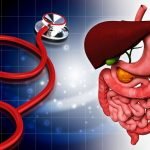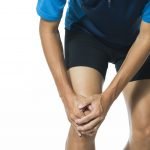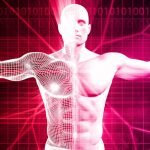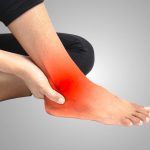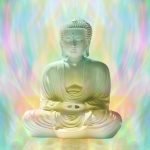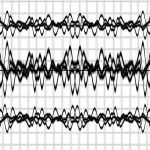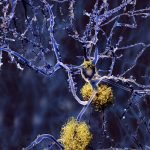Brain Cells Regenerate Even in Elderly Adults
Node Smith, ND
There is still a debate to whether brains are able to change once they are fully developed. Many scientists and doctors still maintain that no new brain cells or neurons are created once an adult is fully developed. This is supported through the observation that with age neuron number and density decline, along with corresponding problems in memory and cognition. However, a recent study from Columbia University further supports the opposite view, that the brain is continuously growing through a process called neurogenesis.1
Study shows that neurons are continuously added
The study, published in Cell last week, shows that neurons are continuously added to our brains even as we reach our seventies.
Dr. Maura Boldrini analyzed brains of 28 deceased individuals – ages 14-79
The lead author and researcher, Dr. Maura Boldrini analyzed brains of 28 deceased individuals – ages 14-79. The purpose of the analysis was to study the effects of aging on neuron production. All of the brains were frozen immediately upon donation at negative 112 degrees Fahrenheit before examined, thus preserving the tissue.
Preserved brains were checked for cells that would indicate developing neurons
Neurogenesis has been shown to decline with age – but mostly in lab animals. The research team wanted to see if the same rates of decline were seen in human brains. The preserved brains were checked for cells that would indicate developing neurons. The developmental stages of a neuron include: stem cells, intermediate progenitor cells, immature neuronal cells, resulting in mature neurons. The team focused on the hippocampus – the region of the brain known for its responsibility to memory as well as emotions and behavior.
Hippocampus reveals developing neurons, even during old age
The results showed that for all age groups, the hippocampus shows developing neurons, even during old age. The hippocampus is continuing to make new neurons, however the major difference between a young brain and an old brain is degree of vascularization that can provide growing neurons with the nutrients they need. New blood vessels were seen to be much reduced as people aged. The proteins that aid in the neurogenic process were also reduced with age. The neurons were seen, but the connections may not be able to form between them and other mature neurons, the research team concluded. This may help explain the difference in resiliency and memory between the brains of the old and young.
This research conflicts with another recently published paper
This research is in direct contradiction of another paper recently published in Nature, by Arturo Alvarez-Buylla, a researcher from the University of California San Francisco. Alvarez-Buylla’s study is titled, “Human hippocampal neurogenesis drops sharply in children to undetectable levels in adults.”2 In this study, also performed on deceased brains, neurogenesis was seen to cease after adolescence.
Difference in findings may have to do with preservation methods
The difference in findings between these 2 studies may have to do with the preservation methods employed by the 2 research teams, Boldrini explains. Buylla’s team analyzed samples that were not preserved in the same way. Buylla’s team also only studied 3-5 sections of the hippocampus, while Boldrini’s team looked at the brain region in its entirety. It appears that more research is needed to flush out these inconsistencies.
Sources:
- Boldrini M, Fulmore CA, Tartt AN, et al. Human Hippocampal Neurogenesis Persists throughout Aging. Cell Stem Cell. 2018;22(4):589-599.e5.
- Sorrells SF, Paredes MF, Cebrian-silla A, et al. Human hippocampal neurogenesis drops sharply in children to undetectable levels in adults. Nature. 2018;555(7696):377-381.
Image Copyright: <a href=’https://www.123rf.com/profile_racorn’>racorn / 123RF Stock Photo</a>
 Node Smith, ND, is a naturopathic physician in Portland, OR and associate editor for NDNR. He has been instrumental in maintaining a firm connection to the philosophy and heritage of naturopathic medicine among the next generation of docs. He helped found the first multi-generational experiential retreat, which brings elders, alumni, and students together for a weekend camp-out where naturopathic medicine and medical philosophy are experienced in nature. Four years ago he helped found the non-profit, Association for Naturopathic ReVitalization (ANR), for which he serves as the board chairman. ANR has a mission to inspire health practitioners to embody the naturopathic principles through experiential education. Node also has a firm belief that the next era of naturopathic medicine will see a resurgence of in-patient facilities which use fasting, earthing, hydrotherapy and homeopathy to bring people back from chronic diseases of modern living; he is involved in numerous conversations and projects to bring about this vision.
Node Smith, ND, is a naturopathic physician in Portland, OR and associate editor for NDNR. He has been instrumental in maintaining a firm connection to the philosophy and heritage of naturopathic medicine among the next generation of docs. He helped found the first multi-generational experiential retreat, which brings elders, alumni, and students together for a weekend camp-out where naturopathic medicine and medical philosophy are experienced in nature. Four years ago he helped found the non-profit, Association for Naturopathic ReVitalization (ANR), for which he serves as the board chairman. ANR has a mission to inspire health practitioners to embody the naturopathic principles through experiential education. Node also has a firm belief that the next era of naturopathic medicine will see a resurgence of in-patient facilities which use fasting, earthing, hydrotherapy and homeopathy to bring people back from chronic diseases of modern living; he is involved in numerous conversations and projects to bring about this vision.




